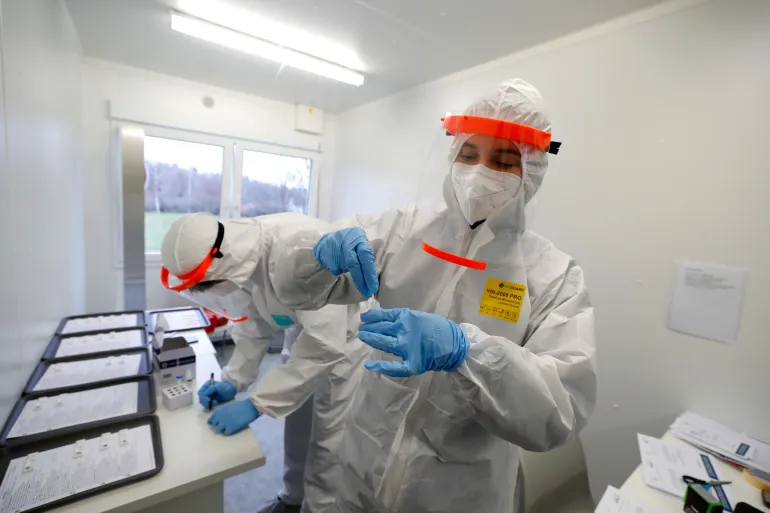- Web Desk
- 12 Minutes ago
COVID-19 cases increased 52% globally in past one month: WHO
-

- Web Desk
- Dec 25, 2023

ISLAMABAD: The number of new COVID-19 cases has increased by 52 percent in the last 28 days, starting from November 20 to December 17, 2023, as compared to the previous 28-day period, with over 850,000 new cases reported, the World Health Organisation (WHO) said.
Although the number of new deaths decreased by 8 percent as compared to the previous 28-day period, with over 3,000 new fatalities reported, as of December 17, 2023, over 772 million confirmed cases and nearly seven million deaths have been reported globally.
WHO today issued a new COVID-19 epidemiological update on the global and regional situation, with information on hospitalisations and ICU admissions, and updates on the variants of Interest and variants under monitoring.
During the period from November 13 to December 10, over 118,000 new COVID-19 hospitalisations and over 1,600 new intensive care unit (ICU) admissions have been recorded with an overall increase of 23 percent and 51 percent, respectively, amongst the countries reporting consistently within the current and past reporting periods, WHO said.
Most of the new infections came from Russia, which reported nearly 280-thousand cases, followed by Singapore with 120-thousand, Italy with over 114-thousand, Poland and Australia with some four-thousand each.
72 new coronavirus cases surface in Pakistan
Italy reported the largest death toll with 510 during the period, followed by Sweden with 396, Russia with 376, Australia with 211 and Poland with 141.
In May, the WHO officially declared the end of the coronavirus pandemic worldwide, advising countries to manage the disease like they do with seasonal influenza.
According to the WHO, as of October 25, there are over 771 million confirmed cases and almost seven million deaths worldwide.
COVID-19 is not the only respiratory disease circulating. Influenza, Respiratory syncytial virus (RSV) and common childhood pneumonia are also on the rise.
Should we be concerned about JN.1?
The CDC has not found evidence suggesting that JN.1 poses an increased risk to public health compared with other variants, and experts say the rise in cases may be part of winter season trends and conditions.
What are the symptoms of JN.1?
Like other COVID-19 variants, symptoms will differ based on a person’s immunity and overall health, according to the CDC.
Common symptoms include fever or chills, cough, fatigue and body aches.




